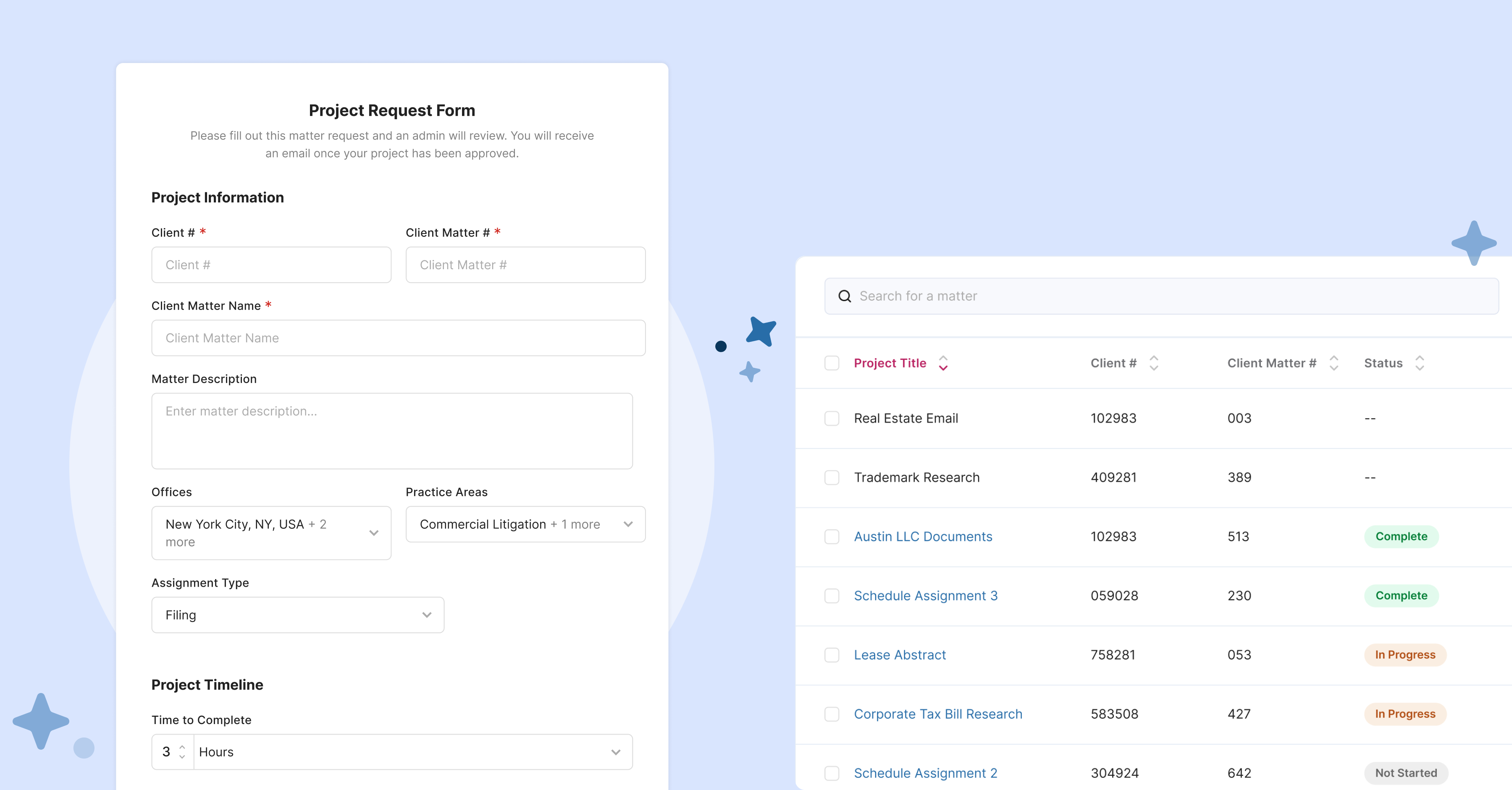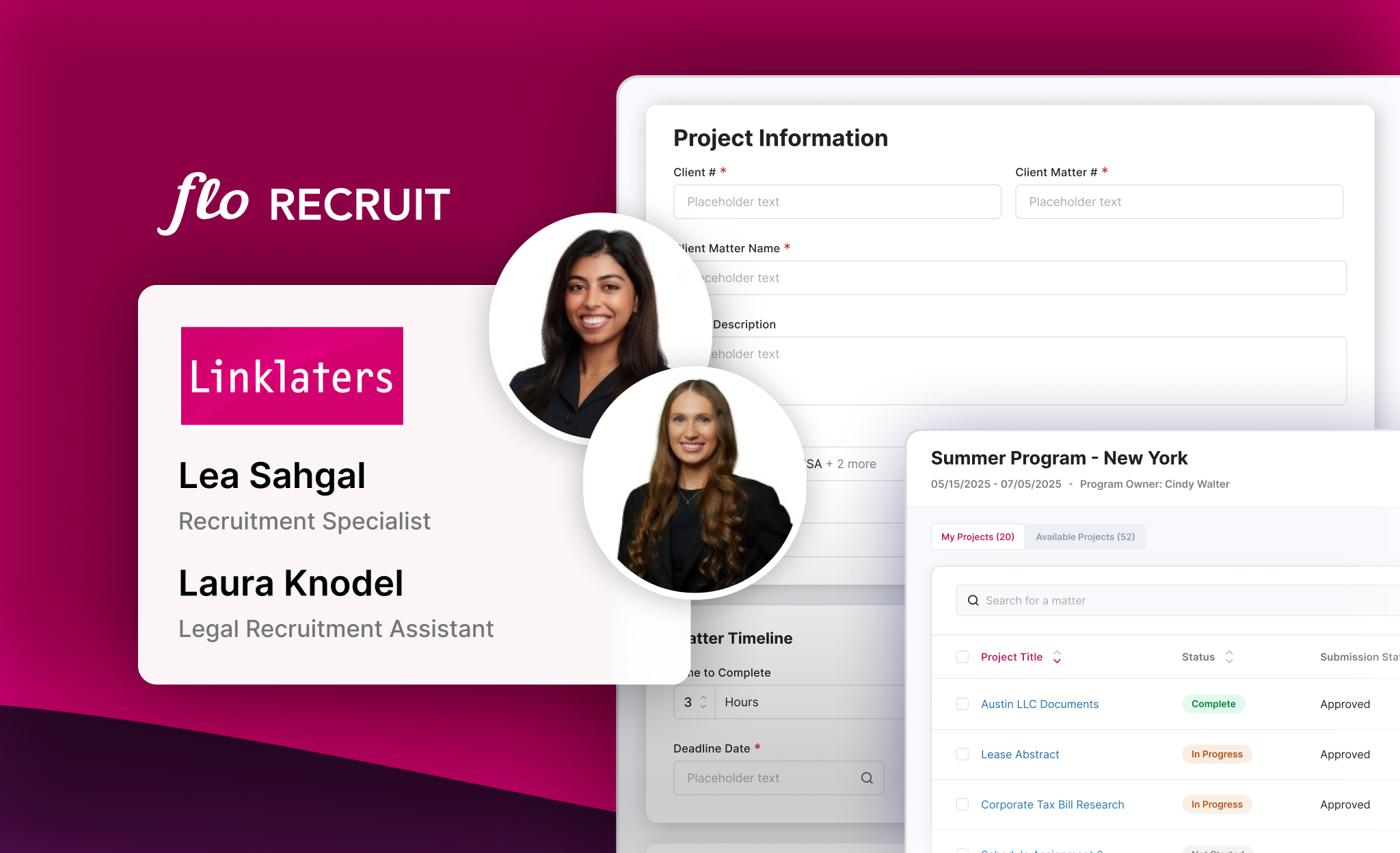What Summer Associates Need to Know About Your Work Assignment System
Running a successful summer associate program isn’t just about offering students a glimpse into the life of a lawyer—it’s about making sure they know exactly how they’ll be expected to engage with your firm’s work assignment system. Clear communication about how assignments are given, evaluated, and followed up on can make all the difference in setting expectations and creating an atmosphere of transparency and trust. For your summer associates to succeed, they need a solid understanding of how the work assignment system operates and how they can thrive in that environment.
Let’s break down what is essential to communicate with your summer associates about your work assignment system. The goal is to equip them with the knowledge and tools they need to navigate their summer successfully while meeting both your firm’s goals and their personal growth aspirations.
1. Be Transparent About How Assignments Are Made
Whether your firm operates a free-market or an assigned system for summer associates, transparency is key. Leaving summers wondering when, where, and how they’ll receive their work assignments is not setting anyone up for success. Set clear expectations from day one so your summer associates understand exactly how the process works.
If your firm operates a free-market system, make sure to explain that summer associates will be expected to actively choose their own assignments. Tell them how they can select projects, how to reach out to attorneys, and what the expectations are for balancing their workload. Be upfront about whether there are any specific deadlines for choosing assignments or if it’s entirely on a first-come, first-served basis.
On the other hand, if your firm assigns work to summer associates, ensure they understand exactly how the allocation process works. Will assignments be distributed at specific intervals throughout the summer? Will summers have the opportunity to express preferences for practice areas or specific types of work? Are there any opportunities to request adjustments if they feel overwhelmed or underutilized? Providing this level of clarity prevents confusion later on and helps summer associates feel in control of their experience.
2. Explain How Assignments Will Be Evaluated and Feedback Will Be Given
The summer associate program is not only about getting work done, but also about learning and improving. It's essential that summers understand how their performance will be evaluated and what kind of feedback they can expect.
Be clear about the evaluation process. Will there be mid-summer reviews? Will you provide feedback on every assignment, or is it something that will be discussed only during a formal review period? Let them know whether feedback will be delivered in real-time or gathered at set times during the summer, and clarify whether evaluations will be based on factors like quality of work, communication skills, or work ethic.
Make it clear that feedback is not just a once-in-a-while occurrence—the best feedback loops are continuous and conversational. Encourage summer associates to seek feedback regularly from their supervising attorneys. It might not always be formal, but it’s essential that they know how to seek guidance when needed and how they can learn from each assignment. Stress the importance of asking questions if they are unsure about their work or if they feel they’re not getting enough direction, and let them know who to go to if they need help or have questions.
3. Be Transparent About What Happens If an Assignment Doesn’t Go Well
Despite their best efforts, there may be times when a summer associate struggles with an assignment. Whether it’s miscommunication, a missed deadline, or the work not meeting expectations, it’s essential that summers know how the firm will handle situations when things don’t go as planned.
Immediate feedback is vital if an assignment isn’t going well. If there’s an issue, summers should be informed as soon as possible so they have the chance to address it before it becomes a bigger problem. This allows them to learn and improve before they move on to their next project. Constructive feedback should outline specific steps they can take to improve in future assignments, whether it’s improving attention to detail, better time management, or clearer communication with attorneys.
It’s also important to explain whether they will have the opportunity to work with the same attorney again if an assignment doesn’t go well. Some firms may prefer to rotate summer associates to different practice groups or attorneys to broaden their exposure, while others might encourage a continued working relationship to help students refine their skills. Be upfront about the expectations around this, so students don’t feel penalized or uncertain if an assignment didn’t go as expected.
4. Set Expectations Around the Number of Assignments and Workload
How many assignments should a summer associate expect to handle? Should they expect to be busy every day? Should they anticipate some downtime or lighter weeks? Clearly define the workload expectations so summer associates can plan their summer accordingly.
If your firm expects summer associates to complete a specific number of assignments, let them know. If the firm doesn’t have a set target, still clarify the general workload and what they can expect in terms of assignment frequency and intensity. Some firms set very specific targets for work volume, while others focus more on the quality and range of experiences they can offer.
5. Encourage a Variety of Assignments and Exposure to Different Areas
One of the key benefits of a summer associate program is exposure to a range of practice areas. Let your summer associates know whether it’s important that they have a variety of assignments, whether that’s across different practice groups or different types of work within a practice group. They may be eager to dive into a particular area of law, but the goal of the program should be to provide a well-rounded experience that showcases the breadth of your firm’s work.
It’s also helpful to outline any specific goals you have for the end of the summer. Should they be aiming to demonstrate proficiency in multiple areas? Are you expecting them to have deepened their expertise in one specific area? If so, make it clear from the outset so they know what kind of focus is expected during their summer.
6. Clarify Timelines, Deadlines, and Document Management
Lastly, your summer associates need to understand timelines—both for the assignments they’ll receive and for the deadlines they’ll be expected to meet. Make it clear how due dates work, how flexible they are, and whether or not extensions are possible. Will they be working with deadlines that are set by the firm, by clients, or by other attorneys?
Also, let them know how they should manage their work in your system. Should they be uploading documents in a specific place or marking assignments as complete when they’re done? A little guidance on how to navigate internal systems will save everyone time and confusion down the road.

Conclusion
By setting clear expectations from the start about your summer associate program’s work assignment system, you help your summers maximize their learning opportunities and contribute meaningfully to your firm. Being transparent, providing timely feedback, and encouraging open communication will foster a positive and productive environment for both summer associates and your team. With the right tools and knowledge, your summer program can be a success for all involved. To learn more about how Flo Recruit’s Work Allocation can address all your summer work flow needs here.



